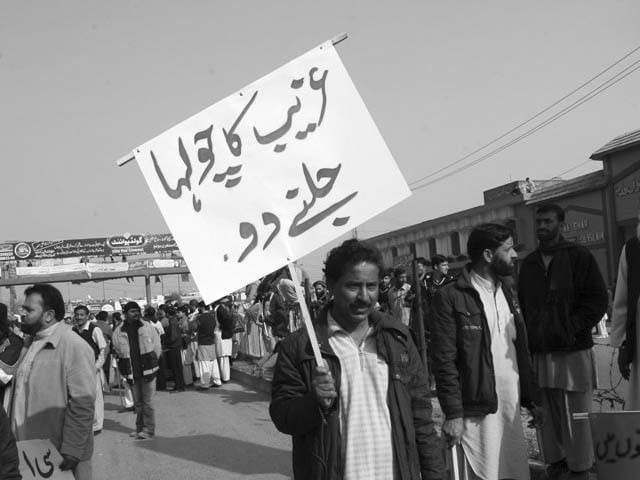Pakistan, and Karachi in particular, has been plagued by electricity and water shortages for decades now. The usage of generators or UPS’ to deal with load-shedding, and a monthly reliance on water tankers to supply clean water has now become commonplace in most households, ones that can afford such means. Basic commodities which the state is obligated to provide – given the taxes citizens pay – have now become luxuries for many.
As if these shortages weren’t sufficient, the government has, for the past few years, been battling a growing inability to ensure adequate supply of gas across the country. This crisis is routinely exacerbated in the winter months when the demand for gas increases in Pakistan. Yet, despite the predictable rise in demand, the state always seems ill-prepared to deal with the surge.
While successive regimes continue to pass the blame amongst each other, the reality of the situation remains unchanged: years of neglect has meant that Pakistan will have “no gas” in the years to come. When Pakistan Tehreek-e-Insaaf’s (PTI) Federal Minister for Information and Broadcasting Fawad Chaudhry makes such a claim, one can’t help but be alarmed. After all, this is a serving government official, seemingly with the authority to comment on such matters. Currently, Pakistan’s existing gas reserves have continued to be depleted by nine percent every year for the last two years. If Pakistan remains on this trajectory, it appears this gas crisis is only set to worsen in the years to come.
However, what makes this situation direr is the haphazard manner in which the PTI regime has attempted to tackle this issue. The government cannot strategize a long-term solution for this problem if it sticks its head in the sand and refuses to acknowledge its role in tackling this shortage. Hammad Azhar, who is currently serving as the Federal Minister for Energy, has stated that the reason the natural gas supply has fallen pitifully short for most households is a result of court orders – absolving himself, and his party, of any responsibility. Similarly, Special Assistant to the Prime Minister Dr Shahbaz Gill has been busy arguing that gas shortages in Pakistan began in 2009, hence it is unfair to hold PTI to task for the ongoing crisis.
The aforementioned few of many examples make it blatantly evident that, like most issues this regime is confronted with, PTI members are far more interested in trying to salvage the slowly crumbling reputation of their party than they are in ensuring that the problems being faced by the citizens are eradicated.
Naturally, no one expects PTI to work miracles and remedy this problem overnight. But the formulation of a comprehensive, all-encompassing and long-term strategy which clearly outlines future polices aimed at tackling this issue head on is the need of the hour. As things stand, it might already be too late, but if PTI fails to chart a course through this crisis now, it’s dooming the nation to a gas-less future.
The financial burden of continued inaction is already starting to wreak havoc for Pakistan’s exchequer and, in turn, the common man. A failure to invest sufficiently in the development of local gas reserves to meet growing demand across the domestic and industrial sectors has meant that Pakistan now has to increasingly rely on imported liquefied natural gas (LNG) shipments. This is deeply concerning since global gas prices are continuously climbing at an alarming rate. As a result, in just a span of six years, Pakistan has become the ninth highest importer of LNG in the world. This trajectory is simply unsustainable from a financial vantage point and needs to be rectified otherwise the government runs the risk of being backed into a corner where it has no alternative but to pay exorbitant prices to import LNG simply because it failed to pay heed to the warning signs.
In light of this, it is fairly unsurprising that the masses have already taken to the streets in Karachi after Azhar proclaimed that imported LNG would not be provided to the already deprived domestic consumers. The fact that PTI members like Sindh Governor Imran Ismail have already criticised Azhar’s “nonchalant behaviour” speaks volumes about the lack of a coherent strategy from PTI to deal with this crisis. If, in Ismail’s words, Azhar is “not answering our calls”, what hope can the average Pakistani citizen have of the country’s energy minister paying heed to their concerns?



COMMENTS
Comments are moderated and generally will be posted if they are on-topic and not abusive.
For more information, please see our Comments FAQ